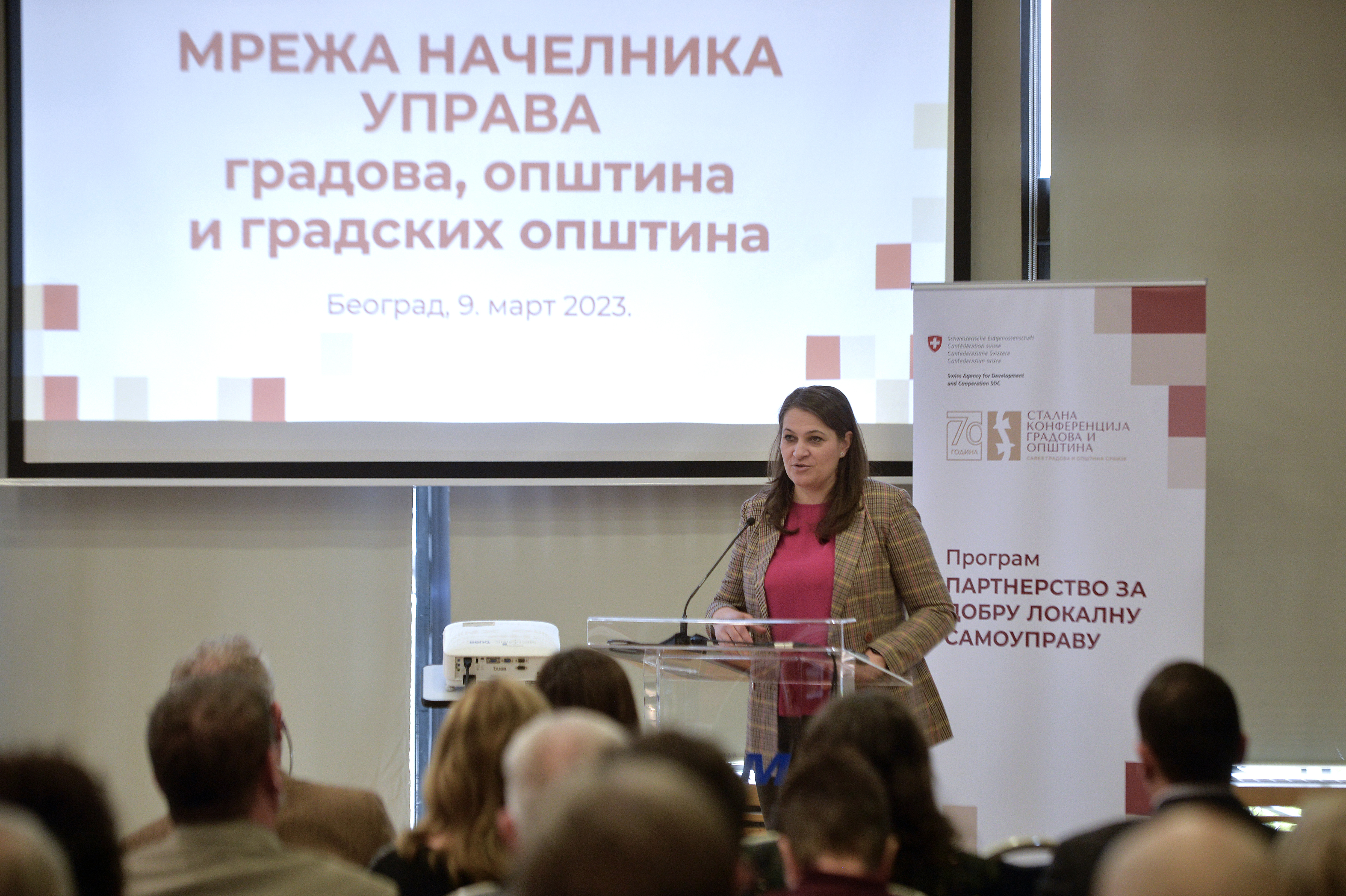
Inter-municipal cooperation is one of the most important reform paths for functional improvement of local self-government, which will significantly improve the quality of life of citizens and make local services cheaper, as emphasized at the today’s meeting of the Network of Heads of City Administrations, Municipalities and Urban Municipalities.
The State Secretary of the Ministry of Public Administration and Local Self-Government, Maja Mačužić Puzić, had reminded the attendees that the possibility of cooperation between cities and municipalities was ensured by the amendments to the Law on Local Self-Government from 2018, while the Ministry, with the aim of further motivating them to join forces and with the support of the Swiss Government, also established the Fund for Inter-Municipal Cooperation.
“The Fund has thus far supported 16 projects, i.e. as many as 53 inter-municipal partnerships. In this way, by pooling human, technical-technological and financial resources and organizing joint user-oriented services, we facilitate the functioning of local self-governments, provide citizens with concrete benefits and better living and working conditions, and build an administration tailored to all of us,” Mačužić Puzić has said, adding that inter-municipal cooperation is also an exceptional incentive for the even regional development of the country.
The Director of the Swiss Cooperation Office in Serbia, Richard Kohli, has pointed out that the Swiss Government has been supporting cities and municipalities in Serbia for more than 15 years, and that a strong partnership has been established with SCTM and MDULS with the aim of conducting a reform of local self-governments into modern, democratic institutions capable of providing quality services to the citizens.
“Local self-governments are the form of government which is closest to the citizens and occupy a key position as part of the Swiss Government’s development assistance, with a desire for citizens to be the focus of their work,” Kohli has said and added that, by establishing inter-municipal cooperation, local self-governments will be able to provide more complex services to the citizens.
The Secretary General of the Standing Conference of Towns and Municipalities (SCTM), Nikola Tarbuk, has stated that this organization shares the vision of systemic development of inter-municipal cooperation in the Republic of Serbia, which has the potential to be an important catalyst and generator of development of local communities.
“There are at least two reasons for the establishment of inter-municipal cooperation – the first is the pooling of resources which should lead to the improvement of the quality and availability of services rendered to citizens and the economy in the local community, while the second concerns limited resources and a significant difference in the capacities of cities and municipalities for performing all the responsibilities of local self-government. For tackling such challenges in practice, one of the best solutions is inter-municipal cooperation, i.e. the pooling of resources and synergistic action on the provision of local services, through cooperation between local communities”, Tarbuk has stressed.
Today’s meeting of the Network of Heads of City Administrations, Municipalities and Urban Municipalities was organized by SCTM as part of the programme “Partnership for Good Local Self-Government”, which is supported by the Swiss Government. On this occasion, the participants of the meeting received guidelines for the establishment of inter-municipal economic entities, and models of agreements and contracts on their establishment were presented to them.
Photo gallery – source: Tanjug






